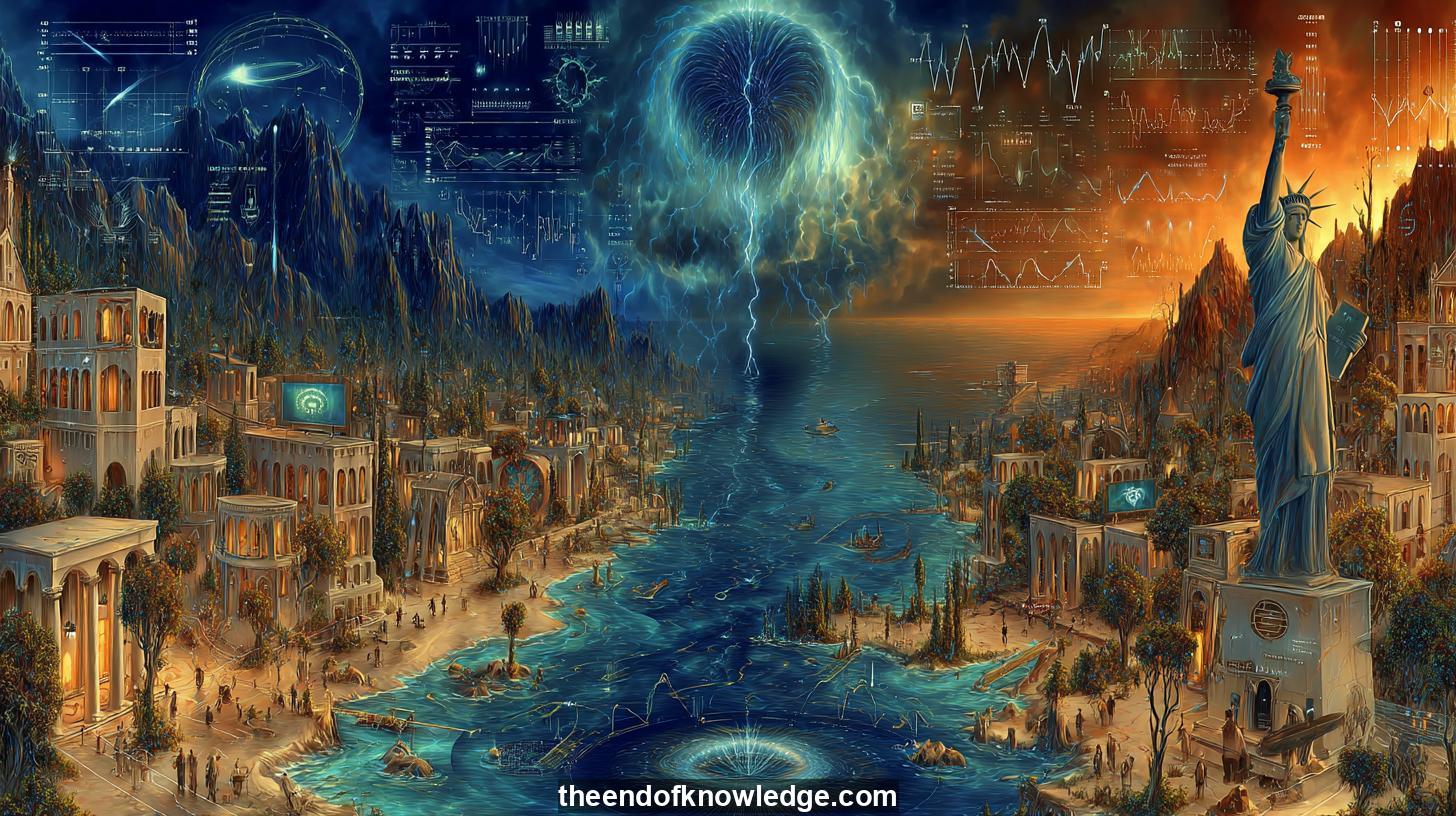 >
>
Concept Graph, Resume & KeyIdeas using Qwen3-235B-A22B :
Resume:
The discussion centers on potential societal collapse influenced by technological, political, and cultural shifts. Host Plácido and guests Eduardo Cano and Jesús Lozano explore themes like AI’s disruptive potential, energy crises, and the erosion of Western values. The recent Spanish power outage (“apagón”) serves as a metaphor for systemic fragility, with parallels drawn to pandemic-era vulnerabilities. Participants debate whether AI could accelerate collapse by destabilizing economies, jobs, and human identity, or serve as a tool for renewal. Eduardo emphasizes AI’s role in reshaping industries, while Jesús critiques societal complacency, likening modern behavior to “monkeys dancing in the dark.”30 Key Ideas:
1.- AI’s systemic risks mirror energy grid failures, exposing vulnerabilities in tech-dependent societies.
2.- Youth disillusionment with entrepreneurship signals economic stagnation and brain drain in Spain.
3.- Political corruption and external pressures accelerate Spain’s cultural and economic decline.
4.- Universal basic income may address AI-driven job loss but risks creating dependency.
5.- Transhumanism debates balance human augmentation’s potential against ethical and social divides.
6.- Climate change models face credibility issues amid conflicting data and historical precedents.
7.- Immigration policies strain social cohesion, prioritizing newcomers over native populations.
8.- Housing crises reflect unsustainable financial systems and generational wealth gaps.
9.- Digital twins like NVIDIA’s Earth simulation aim to predict crises but inherit human biases.
10.- The “zombie economy” highlights Spain’s reliance on state subsidies over private innovation.
11.- Social media’s role in mental health and identity erosion parallels dystopian narratives.
12.- Religious decline and AI’s rise may create new spiritual dependencies on technology.
13.- Military AI applications, like robot soldiers, risk escalating global conflicts.
14.- Educational shifts toward globalist curricula dilute national cultural identities.
15.- Elites’ Malthusian fears drive population control agendas under climate change narratives.
16.- Youth’s digital immersion fosters hedonism, eroding critical thinking and social bonds.
17.- Political polarization and media manipulation mirror historical empires’ collapses.
18.- Biotechnology’s promise in Spain clashes with bureaucratic and ethical constraints.
19.- Universal basic income’s feasibility hinges on moral values, not just economic models.
20.- Corporate monopolies and tech giants dictate AI’s ethical frameworks, risking bias.
21.- Historical collapses (Rome, Maya) offer lessons on societal fragility and adaptation.
22.- Digital surveillance and the “digital euro” threaten financial autonomy and privacy.
23.- Gender and identity politics reshape cultural norms, fueling intergenerational tensions.
24.- Climate change discourse merges scientific data with ideological agendas, complicating solutions.
25.- Decentralized energy systems could mitigate grid vulnerabilities and geopolitical dependencies.
26.- Post-truth media ecosystems erode trust, enabling manipulation by globalist elites.
27.- Spiritual voids in secular societies may be filled by AI-driven “digital religions.”
28.- Geopolitical rivalries (U.S.China) mirror historical power struggles, risking global instability.
29.- Education’s shift toward AI and STEM neglects humanities, weakening cultural resilience.
30.- Legacy-building through empathy and ethics is critical to navigating AI-driven civilizational shifts.
Interviews by Plácido Doménech Espí & Guests - Knowledge Vault built byDavid Vivancos 2025